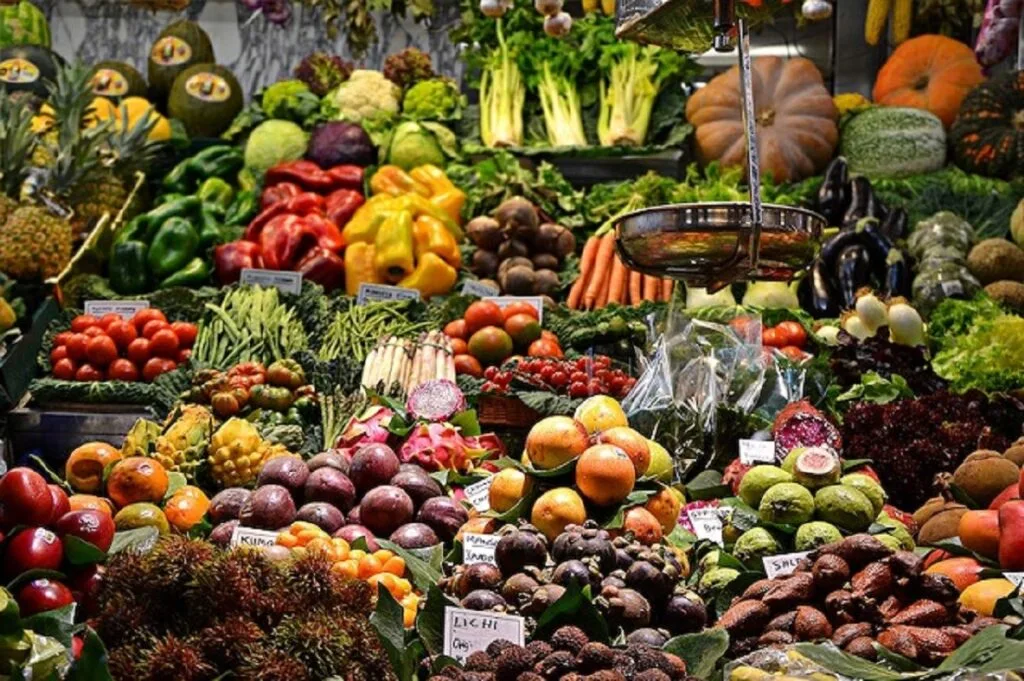In the recent times, there has been a remarkable transition in diets as people become more veggie centrist, driven by the two issues of personal health and the environment. This dietary shift is not just a momentary trend; it is a completely different mindset when it comes to food and its link to our bodies and the environment. Let's look into the reasons behind the spread of plant-based diets and discuss the infinite health and environmental impacts they have.
The Health Perspective
Plant-based diet is basically about consuming food derived from plants including fruits, vegetables, grains, nuts and seeds and either minimizing or completely eliminating animal products such as meat, eggs, and milk. The health benefits that follow this way of eating have been shown in numerous studies as this approach is based on scientific research.
1. **Nutrient-Ric*h Foods*: Plant-based diets are rich in vitamins, minerals, antioxidants, and fiber that are tremendously beneficial to good health. Fruits and vegetables by themselves provide an important variety of nutrients that are needed to guarantee good health and well being for one and all.
2. **Reduced Risk of Chronic Diseases**: Various studies demonstrate that a plant-based diet is associated with a lower risk of chronic diseases including heart-disease , high blood pressure , type 2 diabetes and some types of cancer. Eating plant foods helps lower the intake of cholesterol- and saturated fats, which are replaced by heart-healthy nutrients.
3. **Weight Management and Increased Energy**: Diets based on plants are lower in calories and saturated fats by default when compared with diets of high animal product content. Similarly, they can be part of a healthy diet and help to keep your weight under control while ensuring energy flow for a longer period of time.
4. **Gut Health**: Fiber is present in the plant foods and helps to promote a healthy digestive system by supporting regular bowel movements and by facilitating the growth of benificial gut bacteria. Nourished guts are key components of a good immune system and overall metabolic health.
The Environmental Perspective
Apart from individual personal health, the consumption of plant-based foods will also have wide-ranging effects on the environment.Here's how:
1. **Reduced Carbon Footprint**: Animal farming has been a major factor behind greenhouse gas (GHG) emission, deforestation, and water pollution. People can substantially cut down on their carbon footprint and reverse environmental damage caused by industrial-scale livestock farming by substituting meat with plant-based foods.
2. **Conservation of Natural Resources**: Under normal circumstances, consumption of plant-based foods, in general, requires less natural resources such as land, water and energy compared to animal husbandry practices. Through the growing of plant-rich diets, we conserve of limited resources, as well as, grow sustainable food producing systems.
3. **Biodiversity Preservation**: Industrial livestock promotion frequently involves the use of large amounts of land for rearing cattle and gathering feedstuff, which results in the deforestation of the land and in the biodiversity reduction. Adopting plant-based diets means that future generations will have ecosystems intact and endangered species preserved through the fact that there will be less demand for animal products.
4. **Water Conservation**: Animal farming requires a lot of water. This water is consumed by animals during drinking, for production of animal food (feed), and for waste management. With plant-based diets adoption, people make a contribution to conservation of water and remedy for strained freshwater resources.
Embracing Plant-Based Living
Instead of meat proteins, plant-based diets provide a way to adopt good nutrition and sustainable practices that will benefit everybody and Earth. Healthness is often more important as environmental consciousness, and some of them are sometimes given up to eat good quality diet.
Moving your stomachs to a plant-based diet doesn’t have to be a scary process. Begin by increasing the inclusion of fruits, vegetables, whole grains, legumes, and nuts into your meals but decrease your eating of animal products little by little in each meal. Try new recipes with plant-based ingredients, experiment with everything available to eat from this food group, and appreciate the wide array of tastes and textures associated with plant foods.
When we deliberately decide what we put into our bodies and apply the right choices, we are not only feeding the well-being of our bodies but also influencing the direction of a harmonious and compassionate world. Plant-based diets do not only catch the attention of people at this point in time, but are also a major component of the move towards a healthier and greener lifestyle for the next generation.






0 Comments